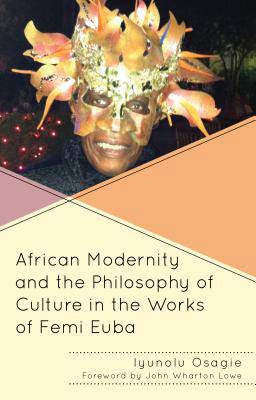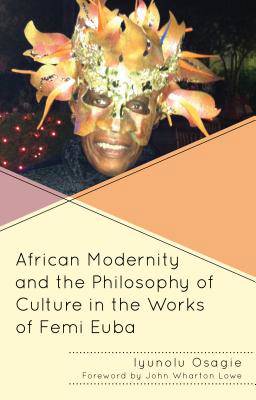
- Retrait gratuit dans votre magasin Club
- 7.000.000 titres dans notre catalogue
- Payer en toute sécurité
- Toujours un magasin près de chez vous
- Retrait gratuit dans votre magasin Club
- 7.000.0000 titres dans notre catalogue
- Payer en toute sécurité
- Toujours un magasin près de chez vous
African Modernity and the Philosophy of Culture in the Works of Femi Euba
Iyunolu Osagie
178,95 €
+ 357 points
Description
This book examines the creative and critical works of Nigerian playwright and novelist Femi Euba to demonstrate the place and function of African cultures in modernity. The author makes the case for the vibrancy of such cultures in the shaping and constitution of the modern world.
Spécifications
Parties prenantes
- Auteur(s) :
- Editeur:
Contenu
- Nombre de pages :
- 188
- Langue:
- Anglais
- Collection :
Caractéristiques
- EAN:
- 9781498545662
- Date de parution :
- 05-06-17
- Format:
- Livre relié
- Format numérique:
- Genaaid
- Dimensions :
- 155 mm x 231 mm
- Poids :
- 458 g

Les avis
Nous publions uniquement les avis qui respectent les conditions requises. Consultez nos conditions pour les avis.






